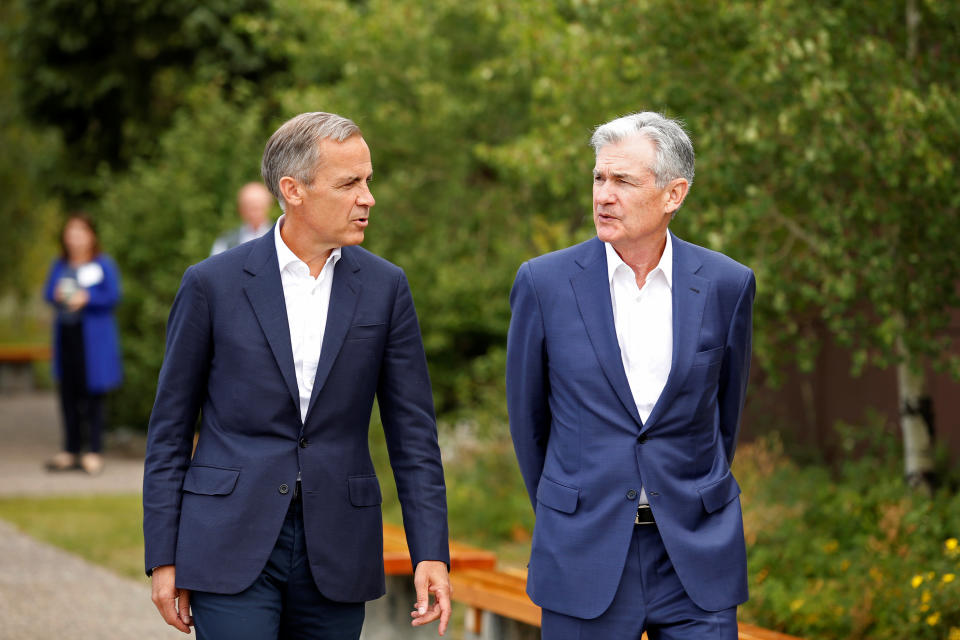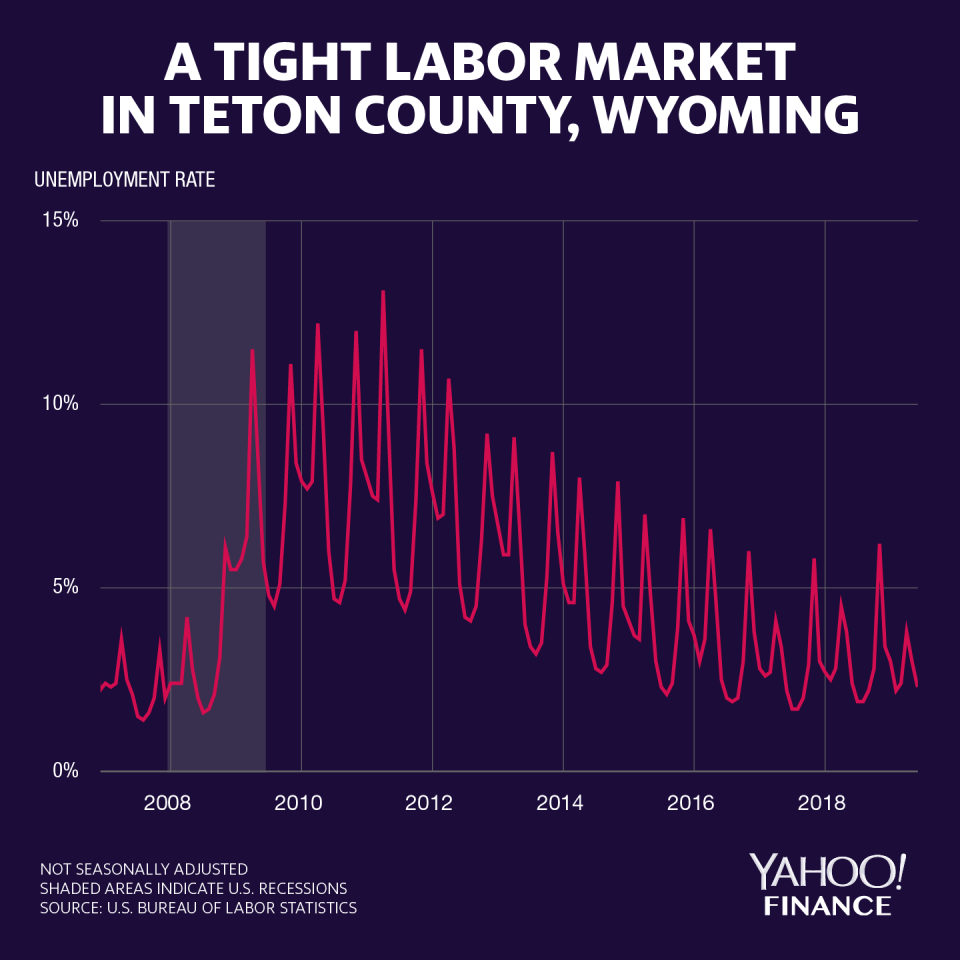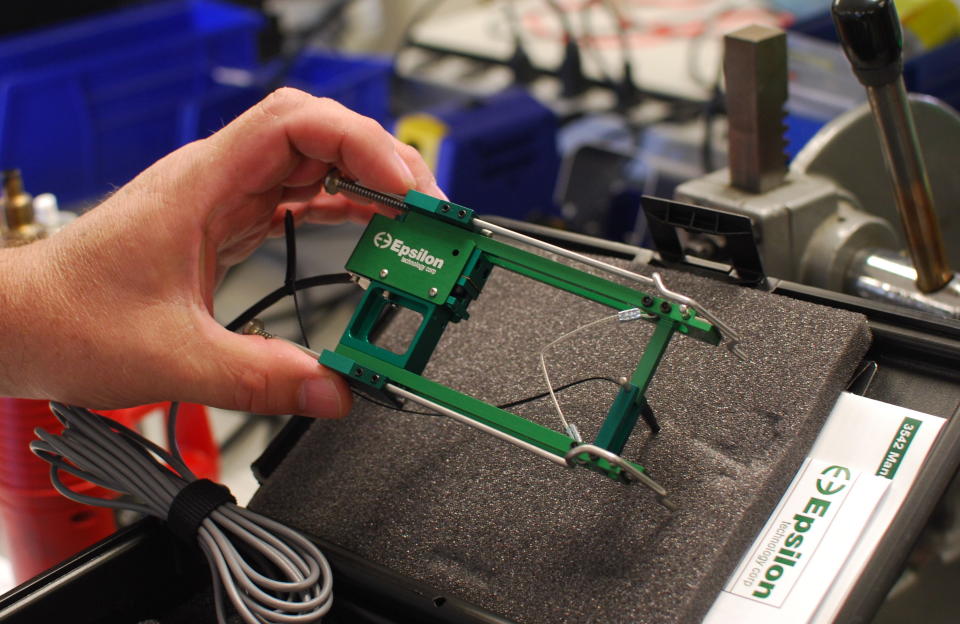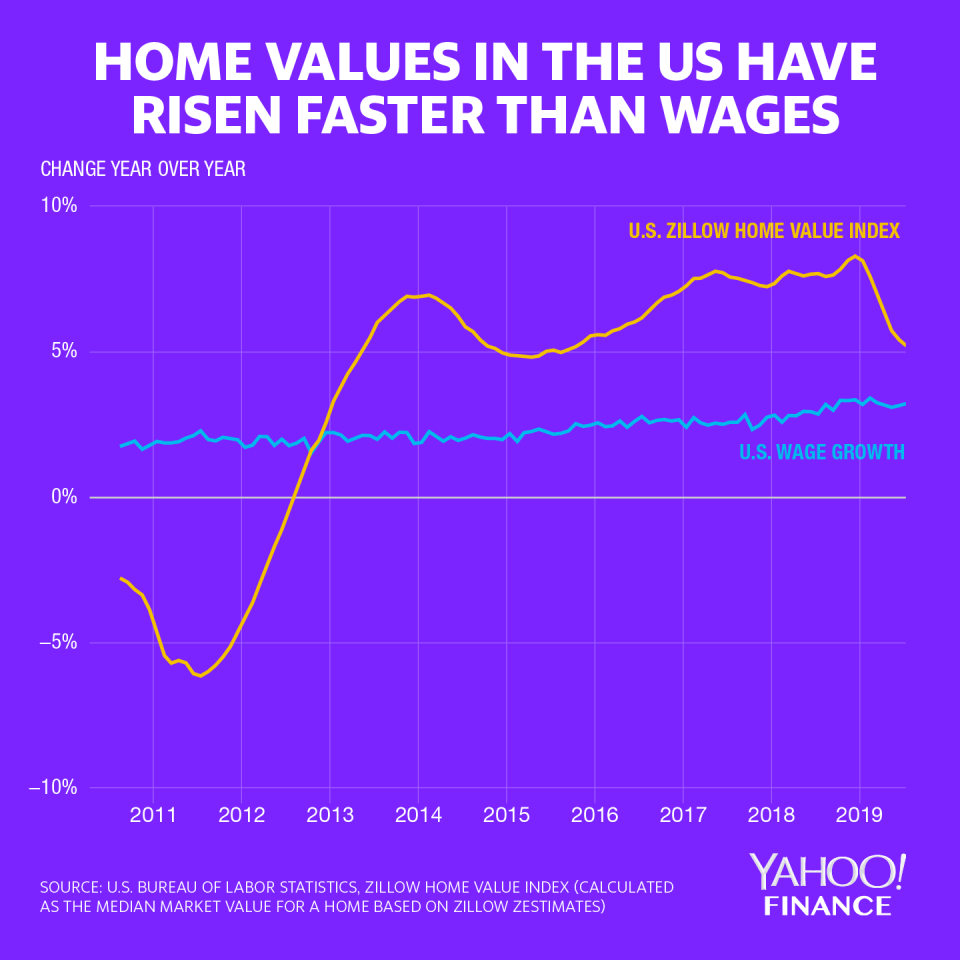‘The weirdest place in the world’: What the Fed missed in Jackson Hole
Every year in August, Federal Reserve officials parachute in to a lodge nestled in the Grand Teton mountains to discuss the best ways to pursue the central bank’s dual mandate of price stability and maximum employment.
But about 30 miles away from the Jackson Lake Lodge, where tourists and residents mostly unaware of the Fed shuffle through the shops and restaurants of a small Wyoming town, a different economic story is playing out.
The Jackson Hole valley is home to the most unequal metropolitan area in the United States. As measured by the Economic Policy Institute in 2015, the top 1% of residents earned an average of $16.2 million, more than 132 times the average income of the bottom 99% of families.

Those in Jackson say the benefits of this economic expansion have helped workers find jobs and lift income, but warned that amid vast inequality, the Fed should not declare “mission accomplished” on its dual mandate.
“You have people living in trailers in the town of Jackson and there are other people flying in on a private jet, that’s an economy that’s not working,” says Pete Muldoon, who hauls bags off of airplanes at the Jackson Airport. In addition to DJ-ing weddings with his production company, Muldoon has also served as the mayor of Jackson since 2017.

“I think the Fed’s mandate ought to be to do what they can to make sure that is not what’s happening — whether they think that is their mandate or not.”
In Jackson Hole, where visitors tout the beauty of living in some of America’s most picturesque backdrops, residents say they are working too many jobs and too many hours to go hiking or skiing. And instead of spending their money on park entrance fees or ski lift tickets, they are throwing money into rising housing costs.
For the Fed, the question remains: If people have jobs and prices are not suffering from runaway inflation, is the average worker on Jackson’s Broadway Ave or any Main Street in America truly better off?
Making the drive
Jackson is not like the average U.S. small town. As the gateway to the Tetons, Jackson relies on the high-volume summer months to drive economic activity.
When souvenir shops and restaurants open for the high season, jobs can be found nearly everywhere, which is why the unemployment rate in Teton County was a remarkably low 2.3% in June. With a census-estimated population of only 10,429, Jackson relies on importing labor from abroad — through J1 and H2B visas — for temporary summer work.

But a little over three miles south from the saloon doors of the famed Cowboy Bar and gift shop, a non-seasonal business and its 23 employees are also seeing a tight labor market.
At Epsilon Technologies, the world’s largest exporter of extensometers, technicians are being hired without any electrification or fabrication experience needed to make the devices that test the stress-strain of materials like metal and plastic.
“Anybody who wants a job here can get a job,” Stuart said of the Jackson labor market. Epsilon is still looking to fill a technician role.
The Fed’s worry: that trade concerns could disrupt American businesses like Epsilon. With roughly a sixth of its $6 million in revenues last year coming from China, Epsilon is certainly paying attention to the impact of trade (even though its entire supply chain is entirely U.S.-based).

But with little impact so far, Epsilon employees are less concerned about their employer staying open for business than they are about the sky-high prices of living in the Jackson Hole valley. Unable to afford housing in Jackson, about two-thirds of Epsilon employees drive from as far as Idaho Falls (a nearly two hour drive) to get to work.
Muldoon says the abundance of high-paying jobs is driving enough workers to Jackson that traffic is starting to become a serious issue for the town.
“Wages are driven up to the point where people will come and commute,” Muldoon said.
Housing bubble?
A tight labor market is good news for the Fed, which has pointed to record lows in committing to “sustain the expansion.” Over the past few years, a tighter labor market has also translated into higher wages. In July, year-over-year hourly earnings for the average American worker ticked up to 3.2%.
But in Jackson, wage growth has been unable to outpace the growth in home prices over the past few years.
The home price inflation is the result of the wealthy and powerful who drop into Jackson seeking a getaway in the mountains. Among the famous names who have had homes at some point in Jackson: actor Harrison Ford, former vice president Dick Cheney, and Walmart heiress Christy Walton.
As a result, the median market value of a home in the Jackson metro area was $576,900 as of July 2019, based on Zillow estimates, more than double the national median home value of $229,000.
“Right now, realtors who have been here a long time are predicting a burst,” said Jackson Hole Chamber of Commerce President and CEO Anna Olson. “It is so inflated at the pricing right now.” Olson said a lack of inventory has continued to press prices higher.

Jackson is an extreme example, but a similar story is playing out nationally. Since 2013, the median value of a home as measured by Zillow has grown at a faster pace than wages as measured by the commerce department.
For those aspiring to own a home, the options are: levering up on a mortgage for that pricey home or continuing to rent.
‘It’s the weirdest place in the world’
Fed Chairman Jerome Powell said in July that in addition to higher labor and land costs, material costs as a result of tariffs have resulted in a “perfect storm” in pushing home prices higher.
“I think with rates on mortgages having dropped quite significantly over the course of the year, we do expect a turn-up there. But these longer-run challenges I think are going to be there and affordability is going to be a challenge,” Powell told Congress on July 11.
One concern is that higher costs of housing may crowd out consumer investment in other things. So far, the Fed has said the economic driver fending off concerns over a recession is a strong U.S. consumer, which Powell says is 70% of the economy.
In Teton County, those who can’t afford a home are struggling to keep up with rising rent as well. The average monthly rental rate for a two-bedroom apartment rose 11.7% between 2017 and 2018 to $2,138, according to statistics from the state of Wyoming. The statewide average rent for an equivalent apartment over the same time period rose only 2.6%, to $735 a month.
Those in Jackson therefore only have one option to live in the valley: work more and work harder. Take on three jobs, like Mayor Muldoon, or work 50 to 60 hours a week, like Jim Stuart at Epsilon.
“It’s the weirdest place in the world,” said Stuart, who makes the drive across state lines from Idaho every day. “I’ve never felt so rich and so poor at the same time than living here. Because I drive through 20 miles of houses I can’t afford to get to a house I can afford but I’ve got more money in my pocket than I’ve ever had in my life.”
From his office window he has a beautiful view facing westward, of the foothills leading down to the Flat Creek. Scattered across the terrain are a few houses, each worth over a million dollars.
Brian Cheung is a reporter covering the banking industry and the intersection of finance and policy for Yahoo Finance. You can follow him on Twitter @bcheungz.
The Fed is thinking globally despite Trump's push for an 'America First' monetary policy
Bonds, yields, and why it matters when the yield curve inverts: Yahoo U
Congress may have accidentally freed nearly all banks from the Volcker Rule
Read the latest financial and business news from Yahoo Finance


